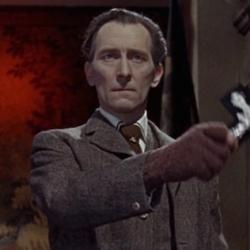In a short story called “The Fog-horn,” Ray Bradbury wrote of his most important prose-poems:
“One day many years ago a man walked along and stood in the sound of the ocean on a cold sunless shore and said, ‘we need a voice to call across the water, to warn ships; I’ll make one. I’ll make a voice like all of time and all of the fog that ever was; I’ll make a voice that is like an empty bed beside you all night long, and like an empty house when you open the door, and like trees in autumn with no leaves. A sound like the birds flying south, crying, and a sound like November wind and the sea on the hard, cold shore. I’ll make a sound that’s so alone that no one can miss it, that whoever hears it will weep in their souls, and hearths will seem warmer, and being inside will seem better to all who hear it in the distant towns. I’ll make me a sound and an apparatus and they’ll call it a Fog Horn and whoever hears it will know the sadness of eternity and the briefness of life.’”
What made this so critical for Bradbury’s career, observes Jonathan Eller in the second volume of his biography, Ray Bradbury Unbound, was that one of its readers was John Huston: “after he began to work with Huston on Moby Dick, Bradbury discovered that this story above all others had sold Huston on his work. In 2006, he could still recall Huston’s October 1953 revelation: ‘I read the story The Fog Horn, and I smelled the ghost of Melville.’ In particular, Huston found Bradbury’s self-contained paragraph about the creation of the foghorn to be ‘pure Melville.’”














